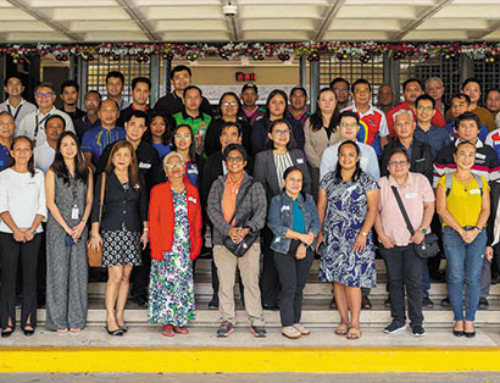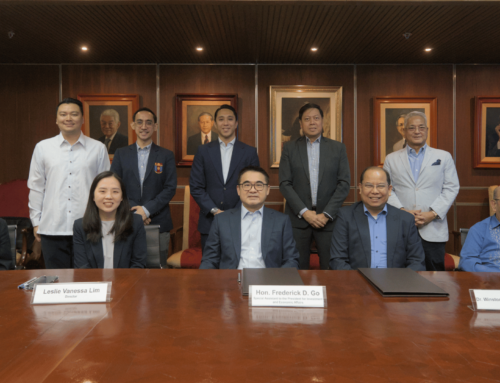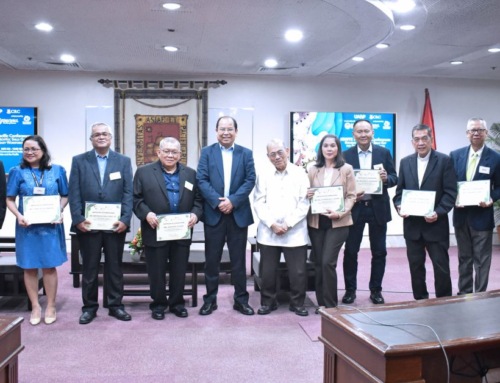With the recent developments in the country, economists are looking closely at the future economic status of the Philippines as it shifts to a new administration. According to CRC Research Director Dr. Bernardo M. Villegas, the Philippines’ GDP can keep growing to at least 6 to 7% for the next six years or so. How? Much of this can be attributed to the CREATE law and the Build, Build, Build program, but one of the greatest factors that can help the Philippine economy is the amendment of the Public Service Act. This will greatly boost the country’s attractiveness especially in gaining more Foreign Direct Investments or FDIs, particularly in industries such as infrastructures, airports, railways, telecommunications and more.
Zooming in on the amendment of the Public Service Act, this entails that “foreign equity can flow more freely in some of the most vital infrastructures needed for our next stage of industrialization called Industrialization 4.0.” In addition, “potential investments can be followed by even bigger investments in such sectors as airports, railways, expressways, tollways and shipping that are now open to 100% foreign ownership, thanks to the amended PSA law.” In an article from the Philippine News Agency, “under the amended PSA, the telecommunications, railways, expressways, airports, and shipping industries will be considered public services, allowing up to 100 percent foreign ownership in these sectors.” Other key points include the clearer distinction between public utility and public service, the power of congress or the president to recommend or classify a public service as a public utility and more. Positive signs also point that foreign investors are beginning to take interest in the country as its “2021 FDI figures reached $10 billion, one of the highest in the last decade or so…” The Department of Trade and Industry (DTI) also expects around “250 foreign investment leads worth $8.8 billion (PhP450 billion) to come to the country” in the coming years.
Having said all these, how can the Center for Research and Communication (CRC) help you as an investor? Simple. As the leading research and consultancy firm in the Philippines, CRC has proven that it is the premiere advisory group of the Public Service Law. This can be seen through its successful partnerships with various Local Government Units. One example is the series of economic fora with the Department of the Interior and Local Government (DILG) last 2021, which touched on discussions on the proposed amendments to the economic provisions of the 1987 Constitution. The monthly webinars were launched to raise the community’s knowledge on important issues about the Foreign Direct Investments on certain sectors, such as MSMEs, Labor, Public Utilities (Telecomm, Energy, and Electricity), Advertising, and others.
With the help of this partnership, CRC has gained not only a wide array of network but also proves how deeply involved it is with anything related to the Public ServiceAct . If you are looking to venture into the Philippine market, a partnership with CRC will help you learn the ins and outs of the Philippines’ guidelines for FDIs through the Public Service Law. To connect with us, message +639054280727 or email [email protected].
Sources:
- Department of the Interior and Local Government. “DILG launches series of economic fora to speed up long-term economic recovery”. 14 May 2021. https://www.dilg.gov.ph/news/DILG-launches-series-of-economic-fora-to-speed-up-long-term-economic-recovery/NC-2021-1088.
- Paroccha, Azer. “Duterte signs law amending Public Service Act.” Philippine News Agency, 21 March 2022, https://www.pna.gov.ph/articles/1170293.
- Sy, Felix. “Amendments to Philippine Public Service Act Passed” Zico Law, 17 May 2022. https://www.zicolaw.com/resources/alerts/amendments-to-philippine-public-service-act-passed/.
———————————————————–———————————————————–
The Center for Research Communication (CRC) is the research and consultancy link to Philippine business opportunities, uniquely poised to help you with business feasibility evaluation, demand and supply analysis, partnership development, project impact evaluation, value chain analysis, customized solutions for design thinking, data analytics and insights generation, and development of business strategies, and consultancy services for investors in Philippine market.
To find out more about CRC, send an email to [email protected], or follow us on LinkedIn. You can also find us on Facebook.





